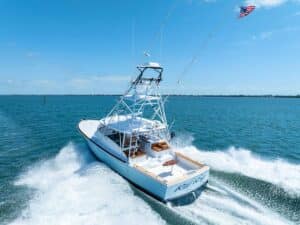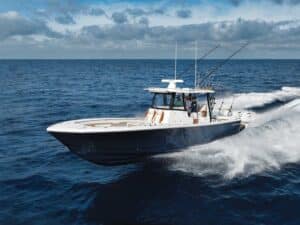
Most of the tax questions we receive are related to sales- and use-tax avoidance. And while that certainly remains to be a significant topic, especially in states without caps, vessel owners often fail to consider property tax. For vessel operations with a steady travel itinerary, property tax is something to consider prior to state registration and setting a fixed schedule.
Sales/Use and Property Taxes
There are significant differences between sales and use and property taxes. To begin with, sales and use taxes are generally regulated at the state level, whereas property taxes are regulated by local governments. Second, state sales tax on a vessel is collected at the time of purchase if bought through a dealer or broker. However, if sales tax is not paid at the time of purchase, it is remitted as a use tax at the time of registration. Regardless of when it’s paid, sales and use taxes are normally calculated using the purchase price, while property taxes are based on a value determined by the relevant local taxing authority.
Perhaps most important, sales and use tax taxes are paid one time, but property taxes are levied annually. Sales and use taxes in a state might be higher, but it often takes only a few years for the annual property tax to catch and surpass the one-time sales- or use-tax payment. Indeed, each annual property-tax payment can actually be higher than sales or use tax in some states.
What is Property Tax?
Personal-property tax applies to movable property not attached to real estate and is a form of ad valorem tax, which means it is based on the value of the item. It applies to items such as motor vehicles, heavy equipment, aircraft and, of course, vessels. Personal-property tax is regulated differently in each state and is not applied to vessels at all in some states, so it can be important to understand the differences between each jurisdiction.
The federal government and state taxing authorities do not collect property taxes. Rather, such taxes are regulated at the town or county level and are generally calculated by multiplying a millage or tax rate by the assessed value of a particular property. An assessor appointed by the local government in each town or county typically determines the taxable value of the property, and there’s often little consistency among jurisdictions.
Can Personal-Property Taxes be Avoided?
It is generally difficult to avoid tax on vessels if the owner is a resident of a property-tax state, but a few basic steps can be taken to increase the odds of avoidance, if they can be performed legally and practically. For starters, an owner should avoid having a hailing port or registration in a state with property taxes. These, combined with the owner’s primary residence and the vessel’s physical location throughout the year, provide further evidence of a vessel’s taxable situs (i.e., location for legal purposes). Second, a vessel with a steady travel schedule should avoid being in a taxable state at the very end and beginning of the year, which is when most counties or towns take a roll call as to which vessels are present at marinas and boatyards. Such a presence, combined with a hailing port and registration in that state, will make it difficult to dispute an assessment, even if the vessel is there temporarily. Operations should plan their travel accordingly.
Read Next: Taking delivery of a boat? Here’s what you need to know.
What to do When Assessed
If assessed, the burden is on the taxpayer to show the property has established situs in a different jurisdiction. Generally the domicile of a vessel is the owner’s residence, and the relevant town or county has jurisdiction over whether it is physically located there on the tax date. For example, evidence that the vessel spends the majority of its time outside the state or a tax payment in another location, combined with a hailing port and registration in another jurisdiction, can be used to dispute the assessment.
Avoiding property tax is possible only with certain types of operations. As a result, it is important to seek legal counsel prior to making any bold decisions related to property tax on a vessel.
Raleigh P. Watson is a contributing author, and a Partner at Miller Watson Maritime Attorneys.







